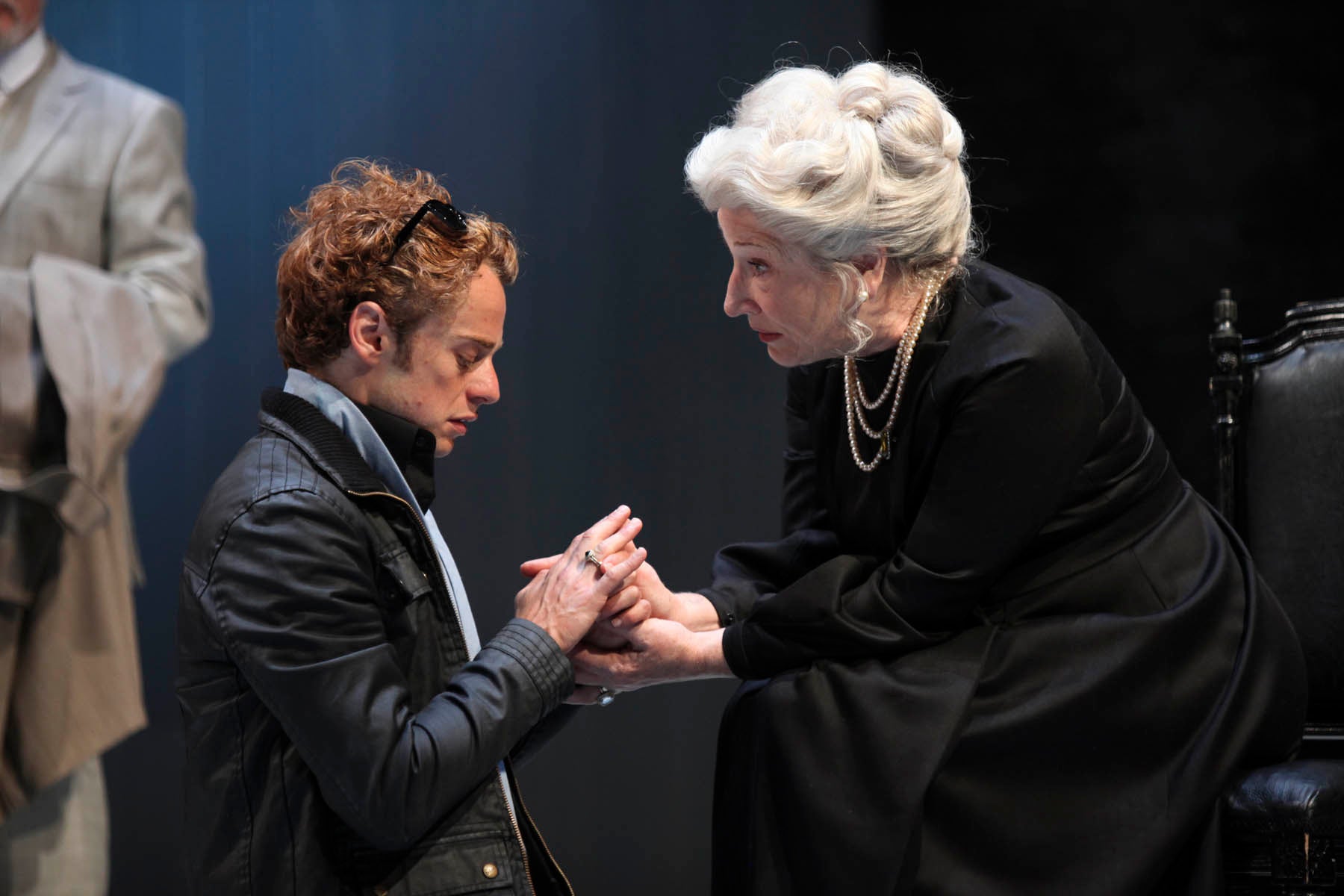Theatre review: All's Well That Ends Well, Royal Shakespeare Theatre, Stratford-upon-Avon

All's Well That Ends Well is amongst the least loved of Shakespeare's comedies and though there have been a couple of excellent revivals in the Swan in the past couple of decades, it's been twenty five years since the RSC last mounted it on the main stage.
Nancy Meckler rises to the challenge of communicating this tonally elusive problem play to a wider public with intelligence and aplomb in a vaguely 20th-century-dress production that confidently stresses the uncomfortable ambivalences in the piece, even if it's less successful at conjuring up the heart-catching bitter-sweetness of mood in the drama's more tentative and delicate moments.
The deliberate difficulties in All's Well stem from the calculated way in which genres and value systems jar and the dictates of romance grate against the claims of psychological realism. The Countess's son, Bertram, may be a callow unprincipled snob, but when his mother's ward Helena, orphaned daughter of a renowned physician, wins the boy's hand as a reward for curing the sick King, disgust for Bertram's desertion of this still-virgin bride and his absconding to the foreign wars is complicated by the consideration that no one can love to order or cheerfully consent to being married off as a gift-wrapped prize.
In this version, Alex Waldmann doesn't underplay the hero's boorish immaturity but he deftly intimates that Bertram has started, despite himself, to have feelings for Helena before he defects. A reluctant kiss on parting turns into something more spontaneous and passionate.
The noisy, balletic war sequences show him deflecting, through the bravado of battle, unfamiliar emotions that he cannot handle. Joanna Horton captivatingly encompasses the heroine's contradictions, combining single-minded determination and an intermittent sense of election at being the channel for impersonal forces with a susceptibility to serious misgivings, as when she succumbs to tearful near-hysteria at the thought she might have driven Bertram to his death.
As false as his punctiliously waxed moustaches, Jonathan Slinger's Parolles disintegrates hilariously from gloating swaggerer to frantic, camp Northern blabbermouth and Meckler ensures that we spot the affinities between the fake ambush that exposes this braggart and the bed trick that ensnares Bertram who is here, in a touch of mitigating irony, evidently shell-shocked at the time by the news of Helena's “death”.
George Bernard Shaw described the Countess as “the most beautiful old woman's part ever written” and the excellent Charlotte Cornwell corroborates that view through a performance that richly mingles wry, humane authority and a silvery, piercing identification with the travails of a young woman in love.
To 26 September; 0844 800 1110
Subscribe to Independent Premium to bookmark this article
Want to bookmark your favourite articles and stories to read or reference later? Start your Independent Premium subscription today.

Join our commenting forum
Join thought-provoking conversations, follow other Independent readers and see their replies